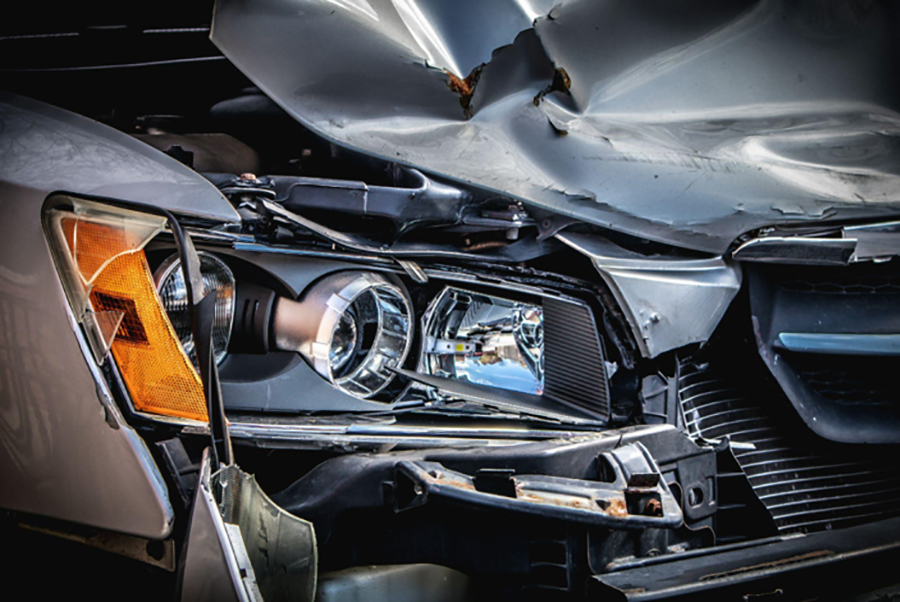Navigating Dangerous Roads: What Are Some Legal Ways of Protecting Yourself
Driving on the roads can be difficult, with numerous potential dangers lurking around every corner. The risks are diverse and often unpredictable, from reckless drivers to unforeseen natural elements. In such an environment, it becomes crucial for individuals to be aware of legal strategies that can protect them from harm and mitigate the potential fallout of accidents or confrontations. This article will explore various legal avenues to enhance personal safety on the road, encompassing preventive measures and responses to unforeseen circumstances.

Legal Recourse for Victims
● Consulting with an Attorney: Navigating the Legal Maze
If you find yourself in a situation where legal action is necessary, consulting with an attorney specializing in personal injury or traffic law can be invaluable. An experienced attorney can guide you through the legal process, helping you understand your rights to advocate to ensure fair compensation for damages. For wrongful death cases, consulting with an attorney becomes even more critical. They can provide compassionate support during this challenging time, offering expert advice on pursuing the claim, navigating complex legal procedures, and striving to achieve justice for your loved one.
● Filing a Police Report: Documenting the Incident
In the aftermath of an accident, filing a police report is crucial. Even in seemingly minor accidents, having an official record can be vital for insurance claims and legal proceedings. Provide the responding officer with accurate information, and obtain a copy of the report for your records.
● Seeking Medical Attention: Prioritizing Personal Well-being
Your health should be the top priority after an accident. Even if injuries seem minor initially, seeking medical attention is essential. Some injuries may manifest days or weeks after an accident, and having a medical record linking them to the incident can be crucial for insurance claims and legal proceedings.
● Understanding Insurance Claims: Navigating the Paper Trail
Dealing with insurance claims is often a complex process. It's essential to understand the terms of your policy, gather all relevant documentation, and communicate promptly with your insurance provider. If disputes arise, having legal representation can aid in navigating the intricate details of insurance claims.
Responses to Unforeseen Circumstances
- Knowing Your Rights: Legal Literacy for Drivers: Understanding your legal rights is crucial to protecting oneself. Familiarize yourself with local traffic laws, know what actions constitute negligence or recklessness, and be aware of your entitlements in the event of an accident. Being legally literate empowers you to make informed decisions and assert your rights when necessary.
- Remaining Calm During Confrontations: Road Rage Mitigation: Road rage incidents can escalate quickly, leading to dangerous confrontations. When faced with an aggressive driver, it's essential to remain calm and avoid engaging in conflicts. Do not provoke or retaliate, as this can exacerbate the situation. Instead, focus on reaching your destination safely and report the incident to the authorities if necessary.
- Emergency Response: Quick Thinking in Crisis: Accidents can happen despite the best preventive measures. Knowing how to respond in an emergency is crucial. Ensure you have emergency contact numbers saved in your phone, carry a first aid kit, and be familiar with basic first aid procedures. Quick thinking and a calm demeanor can make a significant difference in the aftermath of a road mishap.
- Cooperating with Law Enforcement: Your Best Ally: When law enforcement arrives at the scene, cooperation is vital. Provide accurate information, avoid admitting fault, and stick to the facts. It's advisable to exchange contact and insurance information with the involved parties while refraining from engaging in unnecessary discussions. Let the legal process determine responsibility and fault.

Preventive Measures
1. Insurance Coverage: A Shield Against Financial Fallout
One of the fundamental ways to protect yourself on the road is through comprehensive insurance coverage. A robust insurance policy can act as a financial safety net, covering medical expenses, vehicle repairs, and potential legal fees. Understanding the different types of insurance, such as liability, collision, and comprehensive coverage, is crucial to ensuring adequate protection in the event of an accident.
2. Regular Vehicle Maintenance: Keeping Your Shield Strong
A well-maintained vehicle is not just essential for optimal performance but also for ensuring safety on the road. Regular check-ups, timely repairs, and adherence to recommended maintenance schedules can prevent unexpected breakdowns and accidents. Being proactive in vehicle maintenance reduces the risk of being stranded in unsafe areas and minimizes the likelihood of accidents.
3. Defensive Driving Courses: Sharpening Your Defensive Arsenal
Defensive driving courses can significantly enhance your ability to navigate dangerous roads safely. These courses teach proactive strategies to avoid accidents and react effectively to unforeseen circumstances. Many insurance companies offer discounts to people who completed defensive driving courses, making it an economically viable investment in safety and financial protection.
Navigating dangerous roads requires a multifaceted approach that combines preventive measures, quick thinking during emergencies, and a solid understanding of legal recourse. Individuals can significantly enhance their safety on the road by investing in insurance coverage, embracing defensive driving practices, and being prepared for unforeseen circumstances. In the event of accidents or confrontations, knowing one's rights, remaining calm, and seeking legal advice when necessary can make a substantial difference in the outcome. Ultimately, personal safety on the road is a shared responsibility involving proactive measures and informed responses to challenges.